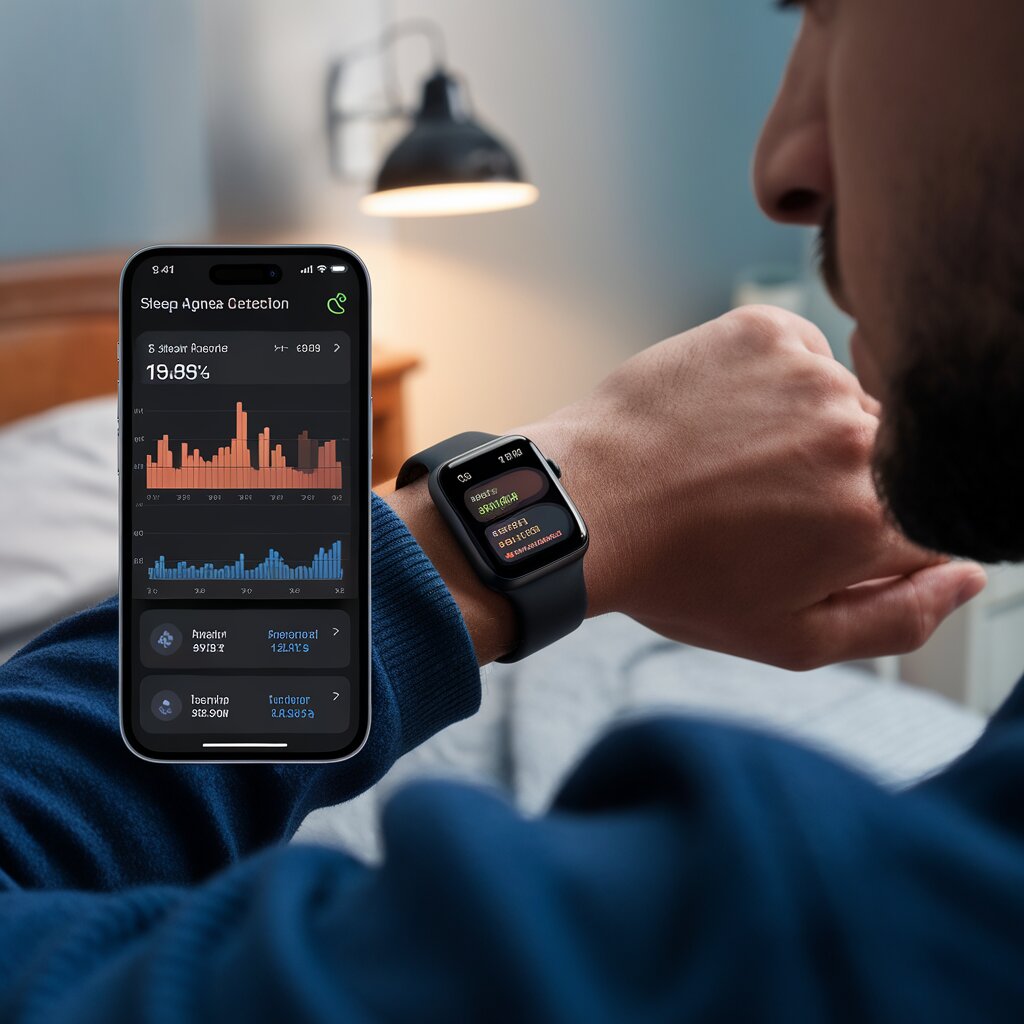The Apple Watch has transcended its origins as a mere smartwatch to become a formidable health-monitoring device. With each new version, Apple pushes the envelope of what wearable technology can achieve in terms of health surveillance. The latest buzz surrounding the anticipated Apple Watch Series 10 centers on a groundbreaking feature: sleep apnea detection. This development could dramatically alter the lives of millions who suffer from this often underdiagnosed condition.
Sleep apnea is a serious sleep disorder characterized by interruptions in breathing or shallow breaths during sleep. These disruptions can lead to significant health issues, including high blood pressure, heart disease, type 2 diabetes, and even strokes. Incorporating sleep apnea detection into a ubiquitous device like the Apple Watch could revolutionize both diagnosis and management, providing a convenient and cost-effective alternative to traditional sleep studies.
The Rumor Mill: A Glimpse into the Future
While Apple has yet to officially confirm the speculation, rumors about the inclusion of sleep apnea detection in the Apple Watch Series 10 have been gaining traction. Reports from credible sources, such as the respected Apple analyst Ming-Chi Kuo, suggest that Apple may include this feature in the next iteration. Moreover, recent patent filings indicate that Apple has been actively researching technologies capable of monitoring sleep apnea through wearable devices.
The Technology Behind Sleep Apnea Detection
The exact mechanisms Apple will employ to detect sleep apnea remain confidential. However, it’s plausible that the Series 10 will utilize the watch’s existing sensors along with potential new additions. The current model already boasts a heart rate sensor and an accelerometer, essential for tracking heart rate variability and movement during sleep. These metrics, combined with advanced algorithms, could offer insights into sleep quality and detect breathing interruptions.
Apple might also introduce new sensors to enhance detection accuracy. For example, a blood oxygen sensor could measure oxygen saturation levels, which typically drop during apnea events. Additionally, a built-in microphone could listen for snoring or breathing irregularities, offering further data points for analysis.
Transformative Potential: Accessibility and Management
Integrating sleep apnea detection into the Apple Watch could be transformative for healthcare. Traditionally, diagnosing sleep apnea has required costly and inconvenient overnight sleep studies in specialized labs. The Apple Watch could democratize this process, providing an accessible and affordable screening tool that could lead to earlier diagnoses and timely treatment.
Beyond diagnosis, the Apple Watch could also empower users to manage their condition more effectively. Personalized insights into sleep patterns and apnea events could allow individuals to track treatment efficacy and make necessary adjustments, fostering a proactive approach to health management.
Navigating Challenges: Accuracy and Privacy
Despite the promising potential, several challenges remain. The accuracy of sleep apnea detection on a consumer device is paramount; false positives or negatives could result in unnecessary anxiety or delayed treatment. Apple will need to rigorously test and validate the technology to ensure reliability.
Additionally, privacy concerns are crucial when handling sensitive health data. Apple’s strong track record in prioritizing user privacy is a reassuring factor, and it’s likely that they will continue to uphold these standards with sleep apnea data.
Beyond Speculation: Apple’s Commitment to Health
While the specifics of sleep apnea detection in the Apple Watch Series 10 are still speculative, Apple’s commitment to health and wellness is undeniable. The company has consistently incorporated advanced health features into its devices, such as heart rate monitoring, ECG, and fall detection. Sleep apnea detection would be a logical and impactful progression in this trajectory.
Apple’s active collaboration with researchers and healthcare institutions further underscores its dedication to health innovation. Ongoing research studies exploring the Apple Watch’s potential in various health applications highlight the company’s mission to leverage technology for improved health outcomes.
The Horizon of Wearable Health
The Apple Watch Series 10, with its rumored sleep apnea detection capability, offers a glimpse into the future of wearable health technology. As these devices become more sophisticated, they hold the promise of revolutionizing health monitoring with personalized, proactive approaches to disease management.
Ultimately, the Apple Watch has empowered millions to take charge of their health. By potentially adding sleep apnea detection, it could enhance the quality of life and even save lives, marking a significant advancement in the realm of wearable health technology.


